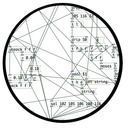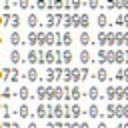3dPd workshop in Athens
@LiamG I've promised a wiki that I haven't yet made, due to not enough time. Hopefully it will be up before the actual workshop so also participants can look it up for further development, apart from what they're going to do in the workshop.
Digital Electronics for Musicians workshop in Berlin
"Digital Electronics for Musicians" workshop based on the book with the same title, at GlogauAIR, Berlin.
Participants will build musical interfaces for their own projects, programmed in Pd and Arduino (without the use of Firmata, but with custom protocols), and the Raspberry Pi if a project needs an embedded computer.
Early bird tickets until the 21st of January!
Please share with anyone interested.
Here's a teaser from a previous, similar workshop:
Digital Electronics and Embedded Systems for Musicians
Hi all,
I'm giving a workshop on Pd/Arduino/Raspberry Pi, based on the book I wrote recently (Digital Electronics for Musicians) in L'ull Cec, in Barcelona from the 18th to the 24th of April. More details here http://lullcec.org/en/2016/workshops/digital-electronics-and-embedded-systems-for-musicians/
Please forward to anyone interested.
Cheers,
Alexandros
I am creating an interactive tutorial for a data flow workshop, anyone care to share ideas?
Hello!
I am going to be teaching a pure data workshop next month in April, and wanted to turn the output of my workshop into a free tutorial to offer as a tutorial/walkthrough. It would be posted in the repo, and hopefully shared elsewhere.
The workshop is for beginners learning to use Pd, and to give them many different ways they can generate and manipulate numbers. I often see workshops showing people objects like [osc~] and teaching them how to use a vslider to change pitch, but waiting until later to really encourage people to learn to think creatively about number creation and data flow.
My idea is to create a large Pd patch with sub patches acting as categorized areas for people to play and experiment with data flow, and dialogue within the subpatches as comment boxes with additional information provided by the lecturer.
My aim is to cover three different levels within the tutorial:
- Simple objects such as moses, spigot, shuffle/random, pack/unpack, send/receive and the such. Mainly focused on direct mechanics and what ways these objects can be "broken" or generate stack overflows, improper order of operations, etc.
- Turning these concepts into basic tools, and introducing logical operators.
- Providing clear examples as to why these are handy for certain applications (e.g. using pack to send a list of floating point variables to act as a "preset")
I was wanting to ask openly what specific objects, forms of data manipulation, and handy tools you wish someone gave you starting out, and how to offer a variety of focuses in this workshop within a three hour time span. What things do you feel NEED to be there, versus could be supplemented later in one's development? What objects or forms of data flow seem more flexible and capable of multiple applications than one would assume with a basic understanding?
Once I get it all written up I can post, in case anyone wants to supplement their own teaching/give to a friend.
Electric Nights Festival Open Call
Medea Electronique is announcing two open calls for the fourth edition of the
Electric Nights Festival 2016, to be held on the 1st and 2nd of April 2016 in
Athens, Greece.
One open call is for live electronic music acts, ranging from noise to IDM,
d'n'b, techno or anything really. Read more about the call here
http://www.medeaelectronique.com/2015/12/electric-nights-2016-open-call/
The second open call is for hands-on workshops that will take place on the 2nd
of April, within the frame of the festival. Read more about the call here
http://www.medeaelectronique.com/2015/12/electric-nights-festival-open-call-for-workshops/
Pure Data Workshops at the Bauhaus Summer School, Weimar 8th-12th Aug.
Pure Data is an easy to learn data-flow programming language for musicians and artists, especially for interactive multimedia projects. It allows the creation of musical compositions, sound design, instruments, interactive installations, real-time video processing and more.
Its design is inspired by the way early telecommunication switchboards and modules of analogue synthesizers were interconnected by patch cords. Pure Data is free open source software. It runs on Linux, OS X, Windows and even mobile devices.
The workshop will give you the opportunity to choose your curriculum individually from a number of parallel sessions of the best Pure Data instructors and well known community members on a wide range of topics and levels. The evenings will feature concerts and performances and will be free for the workshop participants.
The course language is English.
http://www.uni-weimar.de/summerschool/en/welcome/culture-media/creating-interactive-art-and-music/
The Bauhaus Summer School will also take care of you if you need accomodation and help with visa etc.
Here is a preliminary schedule of the workshops:
http://www.uni-weimar.de/medien/wiki/PDCON:Start/Schedule
Workshop: Pd as your embeddable audio engine, NYC 4/23
http://www.nycresistor.com/2011/04/07/class-pd-as-your-embeddable-audio-engine/
"Pd as your embedded audio engine" will teach all about embedding libpd as the sound engine for your app, whether its iPhone, Android, Java, OpenFrameworks, Processing, etc. This workshop provides a broad spectrum of different ways of connecting Pd to other things. Having hardware isn't a requirement either. The workshop will cover ways of interfacing with Pd from computer to computer. Bring your laptop and devices that you want to install libpd on (Android, iPhone, etc.)
HTML and/or programming knowledge will certainly help. The aim of this workshop is to give a broad spectrum of different ways to interface to Pd. So it will be dipping very slightly into Python, C, Java, Javascript, but this is usually "glue code" and all of the code will be fully provided. You do not need to be proficient in these languages at all, the workshop will also cover methods that also just use Pd with no code at all.
Here is an outline of topics:
* Introduction
* History of Pd as an engine
* Ways to interface with a Pd process
* Midi & OSC
* FUDI
* stdout
* Python + sockets
* pdsend/pdreceive
* Parsing patches in three languages
* libpd on Android and iOS
* PdWebKitDroid
* RjDj and ScenePlayer
* WebPd
Purchase a ticket here: http://www.eventbrite.com/event/1491957485
Workshop: Pd as your embedded audio engine
Taught by: Chris McCormick, http://mccormick.cx/chrism
When: Saturday, April 23, 2011 from 1:00 PM - 5:00 PM (EDT)
Where: NYCResistor, 87 3rd Ave, Brooklyn, http://nycresistor.com
Register now!
http://www.eventbrite.com/event/1491957485
Workshop: Xth Sense - Biophysical generation and control of music
April 6, 7, 8 2011
11:00-19:00
Xth Sense – biophysical generation and control of music
@NK
Elsenstr. 52/
2.Hinterhaus Etage 2
12059 Berlin Neukölln
FULL PROGRAM: http://www.nkprojekt.de/xth-sense-%E2%80%93-biophysical-generation-and-control-of-music/
~ What
The workshop offers an hands-on experience and both theoretical and practical training in gestural control of music and bodily musical performance, deploying the brand-new biosensing technology Xth Sense.
Developed by the workshop teacher Marco Donnarumma within a research project at The University of Edinburgh, Xth Sense is a framework for the application of muscle sounds to the biophysical generation and control of music. It consists of a low cost, DIY biosensing wearable device and an Open Source based software for capture, analysis and audio processing of biological sounds of the body (Pure Data-based).
Muscle sounds are captured in real time and used both as sonic source material and control values for sound effects, enabling the performer to control music simply with his body and kinetic energy. Forget your mice, MIDI controllers, you will not even need to look at your laptop anymore.
The Xth Sense biosensor was designed to be easily implemented by anyone, no previous experience in
electronics is required.
The applications of the Xth Sense technology are manifold: from complex gestural control of samples and audio synthesis, through biophysical generation of music and sounds, to kinetic control of real time digital processing of traditional musical instruments, and more.
~ How
Firstly, participants will be introduced to the Xth Sense Technology by its author and led through the assembling of their own biosensing wearable hardware using the materials provided.
Next, they will become proficient with the Xth Sense software framework: all the features of the framework will be unleashed through practical exercises.
Theoretical background on the state of art of gestural control of music and new musical instruments will be developed by means of an audiovisual review and participatory critical analysis of relevant projects selected by the instructor.
Eventually, participants will combine hardware and software to implement a solo or group performance to be presented during the closing event. At the end of the workshop, participants will be free to keep the Xth Sense biosensors they built and the related software for their own use.
~ Perspective participants
The workshop is open to anyone passionate about sound and music. Musical background and education does not matter as long as you are ready to challenge your usual perspective on musical performance. Composers, producers, sound designers, musicians, field recordists are all welcome to join our team for an innovative and highly creative experience. No previous experience in electronics or programming is required, however participants should be familiar with digital music creation.
Participation is limited to 10 candidates.
Preregistration is required and can be done by sending an email to info@nkprojekt.de
Requirements and further info
Participants need to provide their own headphones, soundcards and laptops with Pd-extended already installed.
Musicians interested in augmenting their favourite musical instrument by means of body gestures are encouraged to bring their instrument along. More information about the Xth Sense and a video of a live performance can be viewed on-line at
http://res.marcodonnarumma.com/projects/xth-sense/
http://marcodonnarumma.com/works/music-for-flesh-ii/
http://marcodonnarumma.com/teaching/
Dates
6-7-8 April, 11.00-19.00 daily (6 hours sessions + 1 hour break)
Fee
EUR 90 including materials (EUR 15).
Contact
Marco Donnarumma
m[at]marcodonnarumma.com
http://marcodonnarumma.com
CrazyA/Vmachines@Nk-Berlin
Crazy A/V Machines: a puredata workshop
When:
Monday to Saturday September 27th-October 2nd 12:00-16:00
Where:
NK Elsenstr. 52 2HH 2Etage 12059 Berlin
Who:
Oscar Martin and Luca Carrubba
The aim of this workshop is to learn simple programming strategies for the creation of audio/video software tools for live performances. Generative or interactive piece of software that let artist creates and controls a video stream or an audio processing in real time.
During the workshop we will use Pure Data, a free (as a bird and as a beer) graphical programming language particularly focused on the processing of audio and video data in real time. Pure data is a tool for artists whom wants experiment with a
different creation pattern, with a freedom to build from the scratch they own instruments or interactive installation. You dont need to be a programmer to begin to build your tool. In 5-6 days long workshop you will learn the basis of language, how to manipulate or create a video and how to play with audio. At the end of the workshop all participants will play in a jam session together in the Lab space or exhibit their prototypes.
Participation is limited to 12.
workshop program and registration:
http://www.nkprojekt.de/pure-data-crazy-av-machines-with-oscar-martin-luca-carruba/
--
when Art become pratical
we call it technology.
When Technology become useless
we call it Art
Noisy sound output + midi tech issues
Hi SampleScience!
Regarding your trouble with distorted output, you should increase the latency of your soundcard in audio settings. In windows xp I couldn't get lower than 40 msecs of latency, which is unacceptable for me. I solved the problem by installing asio4all drivers. But I lost multi channel output with asio4all 
There are several sources for learning pd, each of them helped me a lot. And this forum of course is really good place to learn.
35 excellent video tutorials:
nice book
http://www.pd-tutorial.com/english/index.html
one more
http://en.flossmanuals.net/puredata
list of pd objects
http://www.umatic.nl/workshop/objects.txt
miller puckette's theory and technique of electronic music
http://crca.ucsd.edu/~msp/techniques/latest/book-html/
first three links contain information on setting up the pd's audio and midi settings.
hope that helps for start...


